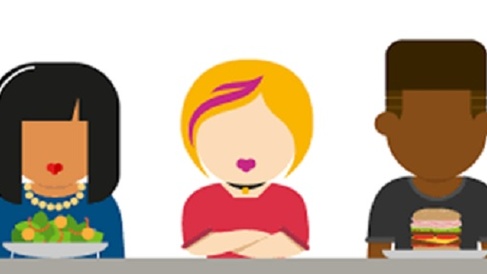Eating Disorders: Fighting taboo challenging stereotypes, finding help.

Eating Disorders: Fighting taboo challenging stereotypes, finding help.
(Please note there is a link below to our Eating Disorder information page; it contains more detail, further information and signposts for help).
Are you wondering if you have an eating disorder, or upset because someone else thinks so? Perhaps you do not fit the stereotypical image of a teenage girl with anorexia – maybe you are a middle-aged man with bulimia?
Or perhaps you are worried about someone else whose behaviour or appearance or relationship with food has changed recently; a loved one or a colleague. Please read on, because I think we need to talk. Eating disorders can be extremely serious, but the good news is that help is available, and recovery is possible. It is never too early to ask for help, and the best place to begin the journey, either for you or for someone else, is from a place of compassion.
The charity Beat (beateatingdisorders.org.uk) reports that there are around 1.25million people in the UK with an eating disorder and that the number is rising. It may surprise you to know that around 25% of these people are male. Eating disorders really don’t care about our differences such as our colour, sex, gender, race, ethnicity, age, job, family background, disability, religion or system of beliefs – they affect us all as do other mental health concerns.
Eating disorders can involve restricting the amount or type of food eaten, avoiding food for long periods, over-eating, bingeing and purging (e.g., deliberately vomiting or using laxatives), and over-exercising. Sufferers often obsess about their appearance and weight and can be defensive and secretive about their eating. Although we are mostly familiar with the disorders Anorexia, Binge Eating and Bulimia, many people find their symptoms do not exactly fit into any one category, but this is much less important than finding help and support.
Eating disorders are not lifestyle choices. They are better understood as a response to struggling with difficult feelings, emotions and situations. Not so much about food itself but rather about seeking control. They can be associated with past traumas (e.g., sexual or other abuse) as well as mental health issues such as low self-esteem. In turn, they can impact on both mental and physical health.
For more information and details of where to find help, including supporting others, please see our Eating Disorders information page.
To self-refer to the Staff Counselling Centre, which offers non-judgemental, sensitive and confidential counselling, or to find out more about us, please see Arranging Counselling information.
